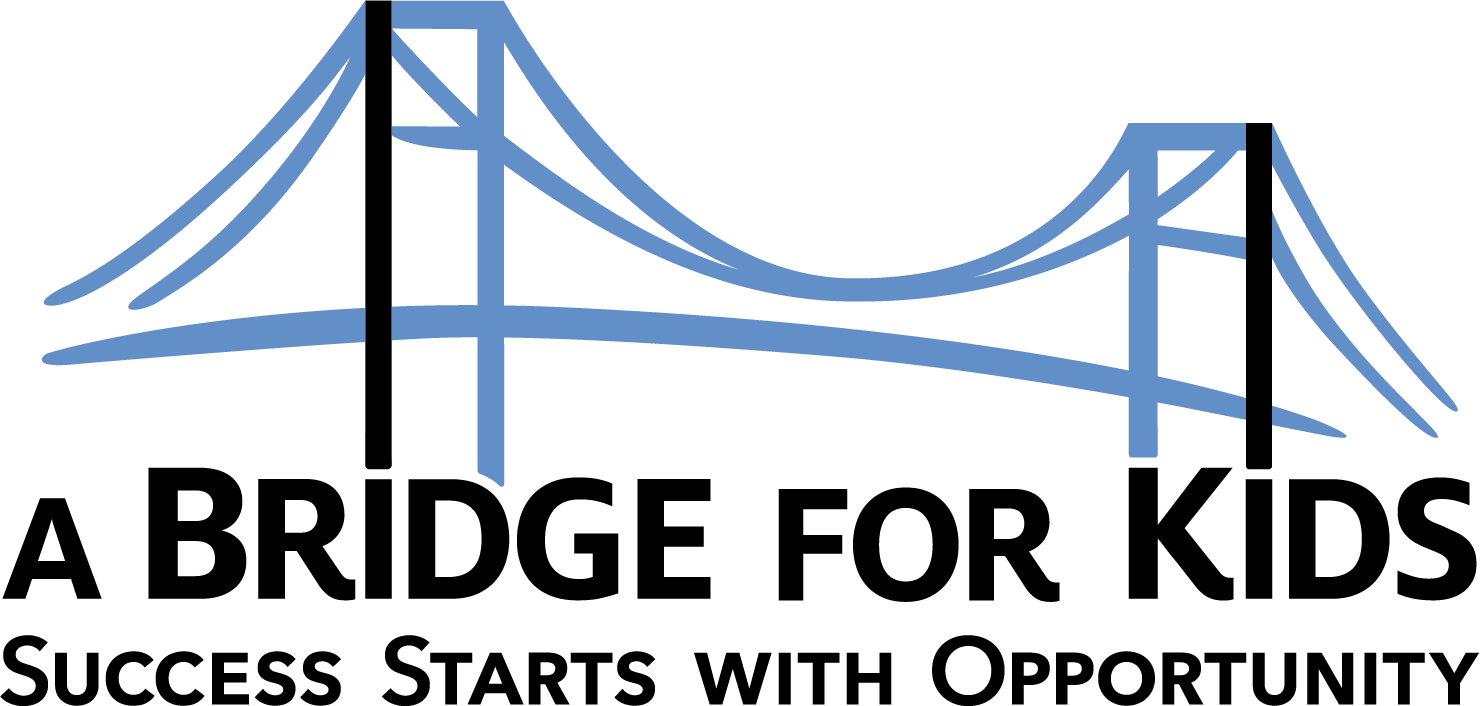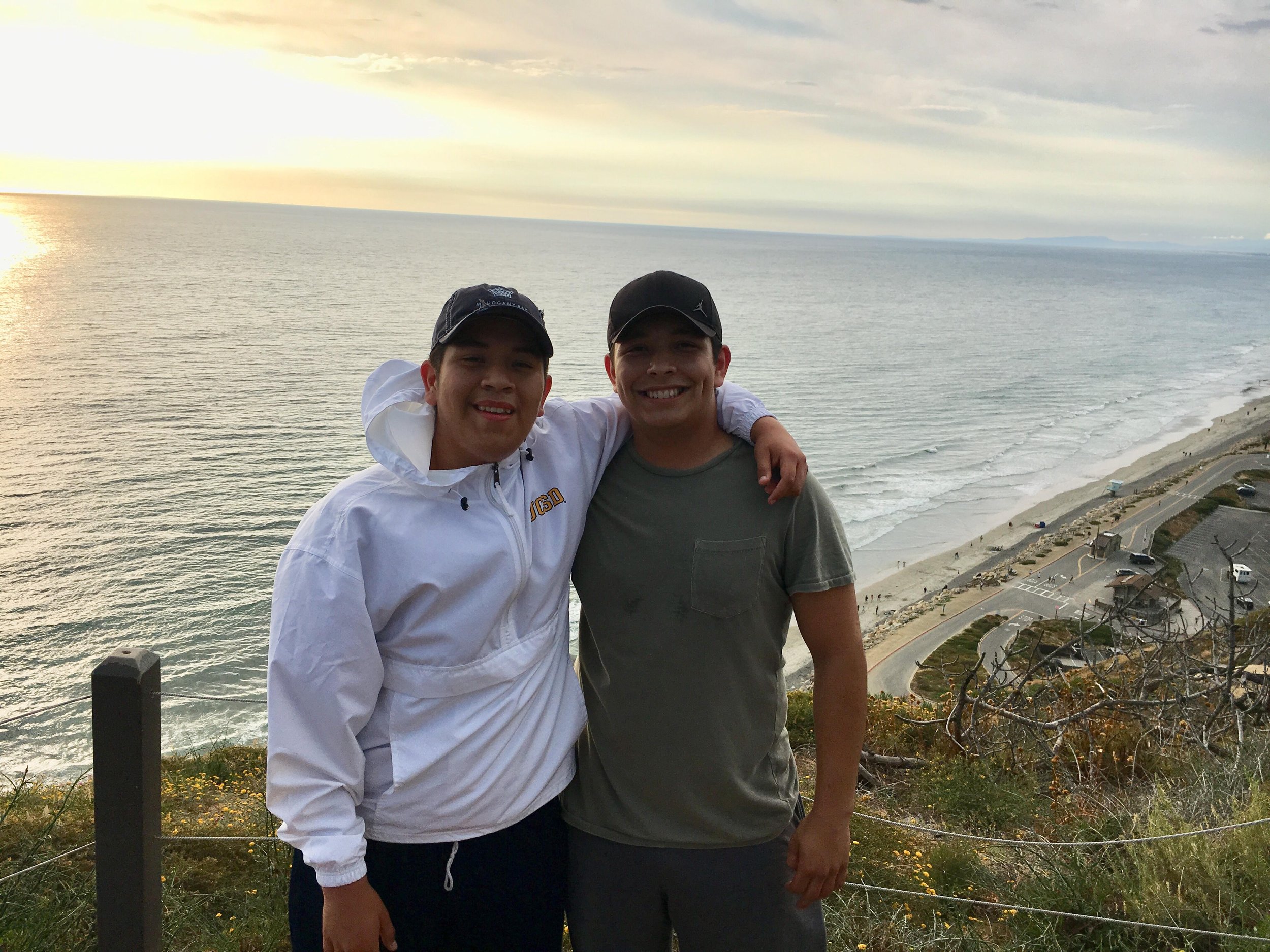Alumni Spotlight: Ronald Moreno The Preuss School '18

How did you first hear about ABFK and what inspired you to apply?
The first time I heard about A Bridge for Kids was my freshman year of high school. I got a recommendation from my scholarship counselor who actually worked with ABFK. I went through the interview process and then Michael Nance ended up sponsoring me.
Can you tell us a little about your background growing up?
Growing up for me was a series of surprises. Life can throw a lot of curveballs your way and I had to catch all of them. I was the mother and the father of the house. I had to take care of my little brother since a very young age. I didn’t have much of a place to live. We lived couch to couch, alley to alley. I had to take charge of my family. Mainly growing up was just being a role model for my little brother.
What advice would you give current high school students like your brother?
1.) Learn to keep promises. Throughout high school I always said I was going to do a lot of things but I hardly ever followed through on any of them and the one thing I did follow through with, I saw incredible benefits and took advantage of all the resources that came with it. I learned that following through and sticking to the promises I make to myself really makes life easier in the long run.
2.) When you put your mind to something, do it. Don’t let it sit and fade away. Spend everyday thinking about your goal and your dream and figuring out why. I think that’s the main reason I got through all the struggles in high school. I figured out the reason why I was doing things and that was to be a role model for my brother. So I think high schoolers should figure out the reason why they want to go to college and who is motivating them, who is looking up to them and be aware of their own influence.
What is something that you followed through with that you are proud of? In high school I always came up with big ideas. The big thing that I wanted to do was community service because my community has given me so much. I probably wouldn’t be sitting here in front of you if it wasn’t for my community. I grew up in City Heights, in a gang-infested area where my life was at risk multiple times and if it was not for my community sheltering me, housing me, I would be dead.
I started working with Reality Changers, a non-profit focused on getting inner city youth to be the first in their families to go to college. I worked with a lot of students who were in similar circumstances, who didn’t have parents, were homeless or in gangs. That’s how I gave back, that was the one thing that I really wanted to follow through with. I put in a lot of effort and a lot of hours and by my senior year of high school, I was the Student Director of the program. It was at that point in my life that I understood the meaning of success. Success to me isn’t a number or a percentage or a letter, it’s more of an impact, it’s the people you’ve brought with you and who you have touched.
Do you have an idea of where you see yourself in 5 or 10 years?
I’m at an interesting point where I am re-evaluating what I’m doing and re-evaluating if I’m doing what I love. I have a dream and a vision of the area I may be in. I’m looking to move into education and promoting higher education for underrepresented minorities (URMs). Right now I’m majoring in neurobiology. But I’m starting to drift away from STEM and science. I feel like I’m happier working with URMs.
What do you see as challenges or obstacles within these two areas of study?
With every career comes a challenge. For neurobiology it is finding the cure to Alzheimer’s. Working with URMs, it’s getting minorities to have a higher representation in college. These are two very intense challenges. One of my mentors told me that what makes you good at your career is your approach to the challenge the career gives you. In the long run I don’t see myself being happy in the lab, tackling Alzheimer’s every day. With research, 90% of it is failure so I wouldn’t be seeing a lot of progress. I feed off of seeing an impact instantly so I’m looking to see where I can do that.
What made you choose neurobiology as your area of study?
I was a homeless student going through a lot of things and I figured if I just got good grades and went into a STEM-related career that would be the dream, the headline story. Finally, I have everything I ever wanted, a home, a roof and a bed and being in that space of feeling settled I’m finally able to think, “what does Ronnie want?” So I’m doing a lot of re-evaluation because I’m in a different mindset now and I’ve moved away from letting my community influence what I want to do with my life. Now I’m doing what I want to do. I’m just trying to stay true to myself. It’s really easy to succumb to the molds that society puts out. I think the best thing that anyone has told me is to not be afraid to take a gamble on yourself and do what you love.
How did ABFK impact your life as a high school student?
ABFK has impacted me in ways that I never dreamed of. They gave me food. They are the reason I had clothes on my back and kicks on my feet. ABFK was literally the only source of income I had to live off of. They taught me to value my time and gave me a platform to share my story. They taught me that even as a student I am equally as important as a room full of people who are in the middle of their careers. They gave me room to grow and a lot of opportunities to meet people who would later become mentors.
I think the main thing that ABFK impacted was my character. It contributed to the person I am today. Growing up, I was fending for myself most of the time so to have someone want to buy me stuff was really weird and new. To this day I struggle with people trying to give me things because my entire life I’ve worked and bent over backwards to get what I wanted. A Bridge for Kids taught me how to trust and rely on people.
What keeps you going in the face of adversity?
When programs give students money, the money doesn’t inspire or push them. It’s the idea that somebody thinks they are good enough to get $2,000. That’s what pushes me. If someone believes in me, that means there is something inside of me that I haven’t seen yet. Michael Nance and A Bridge for Kids really brought that out of me and it contributed to this snowball effect of gaining confidence in myself in high school. Freshman year I had a 2.0 and I ended it with a 4.0. I nearly doubled my GPA within one year because of A Bridge for Kids what they taught me about myself.
Are there any other clubs or organizations that you’re involved with on campus at UCSD?
Right now the only thing I’m involved with on campus is PATHS. It’s a scholarship program focused on increasing the representation of minorities in STEM fields by providing mentorship and advocacy. They pay for everything so that in college all I have to focus on is grades and class. Through that program I’m meeting tons of people on campus. I’m also getting more involved with the education services side of UCSD and the fundraising.
Was there some sort of dream you had in high school that ABFK helped you facilitate?
A Bridge for Kids provided the stepping stones to my dreams. There were so many empty gaps in my life but the dream was college. Getting to be around so many people that were passionate about advocating for URM was enough for me to believe in myself.


